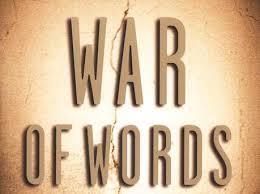In archaic society, revenge and retaliation were provoked by intentional wrongdoing, like murder. Reprisal was not limited to these wrongs, however. The motive for revenge could stem from simply being injured by another, regardless of fault. “Wrong” in this sense means nothing more than “injury caused by another”. A wrongdoer of this type could face a response involving punishment, revenge and the payment of monetary compensation for the harm. These responses of injury-causing behavior are combined with the retributive features of criminal law in order to characterize modern tort law.
Generally speaking torts are committed only by wrongful behavior. The first element is by intentional wrongdoing or negligent conduct, but there are a few torts in which that is not so and in which the defendant is liable without fault. These are so called torts of strict liability.
The second element of any tort is that the behavior must infringe another human being’s interest, which the law regards as being worthy of protection against that form of behavior.
The third element is that the plaintiff is entitled to obtain compensation from the defendants in the form of damages by taking action in a civil court. The compensatory function of the law of torts is that which distinguishes it from criminal law which exists to satisfy the public interest in the redress and suppression of crime by the prosecution of offenders.
The above three elements very clearly explain Dr Winfield’s definition of tort, which is as follows ‘Tortious liability arises from the breach of a duty primarily fixed by the law, such duty is towards persons generally and its breach is redress able by an action for unliquidated damages.’
A more recent definition offered by Peter Birks, suggests that a tort is ‘the breach of a legal duty which affects the interests of an individual to a degree which the law as sufficient to allow that individual to complain on his or her own account rather than as a representative of society as a whole.
GENERAL DEFENCES
Every person has got the right that he can prove his point under which he committed the tort and if it is justified by the law the tort committed by him is nullified by the court. These are the exceptions to the tort law which is known as General defenses of tort law. These are basically the general rules of immunity which limit the general rules of liability of torts.
- Consent: – it is a defense used when the action of plaintiff shows voluntarily given up the consent for the risk or assumption of risk is there. Therefore he cannot enforce the same right against the person by whom tort is committed. This is also known as “volenti non fit injuria” which means plaintiff has voluntarily given up. For this action also includes the assumption of risk taken by plaintiff.
- Act of god: – Act of god or VIS MAJOR can be defined as the act which is free from human intervention i.e. the acts which occur naturally and cannot be avoided by any amount of foresight and care.
- Inevitable accident: – the acts which is not possibly avoided since it is difficult to foresee the results of that act.
- Private defense: – harm inflicted in defense of one’s person or private property is justified if it was reasonably necessary for that purpose like self defense is permissible under necessary conditions.
- Mistake: – mistake is an act which people do under erroneous condition because of the mistake of fact or mistake of law. Though mistake of fact is excusable under certain conditions but mistake of law is not an excuse.
- Necessity: – an action done under certain circumstances which are done for avoiding greater harm. For example if a person pours water on another person in order to avoid fire it can be expressed as act of necessity
- .Exercise of common rights: – common rights exercised under lawful purpose and in lawful manner is no wrong even if it causes damage. It will be damnum sine injuria.
- Plaintiff the Wrongdoer: – a person recovering compensation for his wrongful act is not entitled to get any remedy for damages he has suffered.
- Parental and quasi parental authority: – parents or persons in loco warranties for the purpose of correcting what is evil in the child inflict moderate and reasonable corporate punishment. The authority of teachers in school gives the same functions as parents.
- Judicial and quasi judicial authority: – a defense to an action that the act done by him is judicial act. Like no action would lie if a judge passes a decree or an order. Similarly person or bodies such as universities, colleges, and committee etc. exercising quasi judicial authority are protected from any civil liability if they are followed properly without breaking any rule of law.
- Statutory authority: – the acts done by state which the legislature has authorized to do, such an act, though it is otherwise be a wrong, is considered as a statute. Which exempts state to free from any kind of liability no action can be maintained for such an act.





21 Comments. Leave new
Pretty Informative..
Informative article…. 🙂
Amazing points..well compiled
Nice
nice work!
Well explained:)
Good work!
good points…
Well elaborated.
Well written!
Nice.
well written!
Well presented and informative 🙂 good work!
Nicely written.
The points are concise!
well written!
Increased my level of awareness.. Thanks!
Nice Points 😀
Quite intriguing! Good work!
Nice job!
Informative